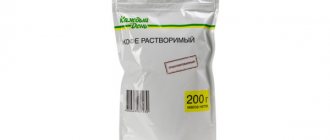Declension of the noun “coffee” (variation by cases and numbers)
Noun “to o fe” (non-standard)
| Case | Singular | Plural |
| Nominative Who? What? | coffee | coffee |
| Genitive Who? What? | coffee | coffee |
| Dative To? Why? | coffee | coffee |
| Accusative (individual) Of whom? What? | coffee | coffee |
| Creative Who? How? | coffee | coffee |
| Prepositional About whom? About what? | coffee | coffee |
Making the Word Map better together
Hello!
My name is Lampobot, I am a computer program that helps you make Word Maps. I can count perfectly, but I still don’t understand very well how your world works. Help me figure it out! Thank you!
I will definitely learn to distinguish widely used words from highly specialized ones.
How clear is the meaning of the word surprise
(verb),
surprised:
Associations to the word “coffee”
Synonyms for "coffee"
Sentences containing "coffee"
- - I'll be thrice damned if I drink. I said I wouldn't drink coffee
if the dog went missing, and I won't!
Quotes from Russian classics with the word “coffee”
Associations to the word "coffee"
The meaning of the word "coffee"
COFFEE, uncl., m.
1. A tropical tree or shrub, from the seeds of which a special drink is prepared; a coffee tree. (Small Academic Dictionary, MAS)
Submit Comment
Additionally
The meaning of the word "coffee"
COFFEE, uncl., m.
1. A tropical tree or shrub, from the seeds of which a special drink is prepared; a coffee tree.
Sentences containing "coffee"
- I'll be thrice damned if I drink. I said I won't drink coffee
, if the dog disappears, I won’t drink!
Figuratively speaking, perfumes often appear on my doorstep early in the morning, when I haven’t even had time to open my eyes, let alone drink a cup of coffee
drink up.
On the contrary, it seems that all you do is strive to punish evil, but no, you just sit down to rest or go to a cafe for a cup of coffee
drink on you - they immediately remind you of your sins.
Source of the article: https://kartaslov.ru/%D0%BF%D1%80%D0%BE%D1%81%D0%BA%D0%BB%D0%BE%D0%BD%D1%8F%D1% 82%D1%8C-%D1%81%D1%83%D1%89%D0%B5%D1%81%D1%82%D0%B2%D0%B8%D1%82%D0%B5%D0%BB %D1%8C%D0%BD%D0%BE%D0%B5/%D0%BA%D0%BE%D1%84%D0%B5
Declension of the word "Coffee"
Declension of the word by case: nominative, genitive, dative, accusative, instrumental, prepositional. In plural and singular. Convenient search for declensions for words, more than 83451 words in our database. Watch the video tutorial on how to pronounce words correctly.
Singular
| Case | Question | Word |
| nominative | Who what? | coffee |
| genitive | Who, what? | coffee |
| dative | To whom; to what? | coffee |
| accusative | Who, what? | coffee |
| instrumental | By whom, by what? | coffee |
| prepositional | About who about what? | coffee |
Plural
| Case | Question | Word |
| nominative | Who what? | coffee |
| genitive | Who, what? | coffee |
| dative | To whom; to what? | coffee |
| accusative | Who, what? | coffee |
| instrumental | By whom, by what? | coffee |
| prepositional | About who about what? | coffee |
It is important to know about word declension
Declension of nouns
Changing nouns by case is characterized by changing their endings, which are called case forms. In total, there are six cases in the Russian language, each of which has its own auxiliary question.
In order to determine the case of a noun, you need to try asking one of the auxiliary questions to it.
There are also indeclinable nouns, i.e. those that have the same form in all cases. Indeclinables include both common nouns (for example, “coffee” or “cocoa”) and proper names (for example, “Goethe”).
As a rule, indeclinable nouns are words borrowed from foreign languages. They can belong to all three genera.
Declension of numerals
The declension of numerals does not have a single pattern; it is represented by several types:
- The numeral one is declined as a singular adjective: one - one (new - new).
- The numerals from five to ten and the numerals -twenty and -ten are declined as nouns of the 3rd declension. Numerals with -ten have two endings, since both parts change: fifty, fifty.
- The numerals forty, ninety, one hundred, one and a half and one and a half hundred, changing according to cases, have only two forms: nominative and accusative cases - forty, ninety, one hundred, one and a half, one and a half hundred; genitive, dative, instrumental, prepositional cases - forty, ninety, hundred, one and a half, one and a half hundred.
- Numerals from two hundred to four hundred and from five hundred to nine hundred are declined according to a special type.
- Collective numbers are also declined according to a special type. Both numerals, both have two different declension options.
- Simple ordinal numbers are declined like adjectives: first (new) - first (new). Complex ordinal numbers have only one ending. For compound ordinal numbers, only the last part changes.
- For fractional numerals, both parts change when declension occurs.
Declension of adjectives
The declension of adjectives is changing them according to gender, case and number.
However, not all adjectives change by gender, number, and case. Short adjectives do not change by case, and adjectives in the simple comparative form do not decline at all.
In order to correctly decline adjectives, you need to know their case questions in both numbers.
It is important to understand that the ending of an adjective can be checked by the ending of a question.
Video lesson in Russian “Changing nouns by case (declension)”
Source of the article: https://sklonenie-slova.ru/kofe
What is the gender of the word coffee?
It is immediately necessary to clarify that in Russia the word coffee is masculine and this noun is not declined. In any case, in writing, in works of art, in the menu there are no other options.
But according to the new rules, in oral speech it is allowed to talk about this drink in both the masculine and neuter gender. To say he or it is not really considered a mistake.
However, people working in the coffee industry never allow this to happen. For example, for a barista the phrase “strong coffee” is unacceptable.
In this matter, there is no need to rely on the world history of drinking the drink. In different countries, not only its name is different, but also its genus. For example, in Arabic it is generally feminine, in English it is strictly masculine, and the Turkish name is neuter. Therefore, in Russia, one should rely on information from traditional, official dictionaries, and not guess what type of coffee.
These restrictions apply only to the word itself in the sense of a drink. If we judge a tree with beans, then it is a neuter genus - a coffee tree.
"coffee" by case
The word “coffee” has 2 meanings with different morphological features; accordingly, it has different endings in different cases. We will show the declension by case for each value.
1st meaning of coffee is noun, singular, plural, inanimate, neuter.
| Cases | Singular Unit | Plural Plural |
| Nominative Name | coffee | coffee |
| Genitive Genus. | coffee | coffee |
| Dative Dat. | coffee | coffee |
| Accusative Vin. | coffee | coffee |
| Creative TV. | coffee | coffee |
| Prepositional Prepositional | coffee | coffee |
2nd meaning of coffee is noun, singular, plural, masculine, inanimate.
Source of the article: https://skloneniya.ru/%D0%BA%D0%BE%D1%84%D0%B5
What do you need to know about word declension?
Nouns are divided into three types according to the type of declension:
- Feminine nouns ending in -а, -я (earth);
- Masculine nouns with a zero ending, neuter nouns with the ending -о, -е (house, field);
- Feminine nouns ending in zero (mouse).
In the Russian language, a special group is made up of indeclinable nouns: burden, crown, flame, udder, banner, tribe, stirrup, time, name, path.
A significant group of nouns does not change in gender and number; they are called indeclinable; depot, foyer, aloe, coffee, coat, attache and others.
Adjectives change according to gender, number and case in the singular. In the plural, the case endings of adjectives of all three genders are the same: new tables, books, feathers.
There are certain rules for declension and numerals. For example, the numeral one is declined as a singular adjective, and the numerals two, three, four have special case forms that are similar to the endings of plural adjectives.
Numerals from five to ten and numerals -twenty and -ten are declined according to the third declension of nouns.
The numerals forty and ninety have two case forms: forty and ninety.
The numerals two hundred, three hundred, four hundred and all numerals starting with -hundred have both parts declined.
Source of the article: https://sklonenie-slov.ru/kofe.html
How to speak correctly
In oral speech, it is not a mistake to say “my coffee” or “my coffee.” In light of recent changes made to the official dictionary, it is acceptable to say “delicious coffee” as well as “delicious coffee.”
But it will still be more correct to adhere to the correct form of the word in the oral and written version of the word. This is especially true in a society where the drink is prepared by a specialist. If you want to get a quality drink and be known as a connoisseur, you should order correctly.
It is also very important to clarify whether you want freshly brewed or freshly brewed coffee. In the first case, it will be freshly ground coffee beans, filled with soft water and boiled in a Turk, and in the second, the finished ground coffee powder is poured with boiling water and infused.
Treat yourself to coffee or coffee
grinds grinds grinds
Since the starting material for making the drink is initially only grain, you have to solve the issue of obtaining coffee flour, that is, grind it. And again the difficulty of agreeing the verb with the noun arises. To describe the process of obtaining ground coffee it would be correct to say this:
All words that came into the Russian language from outside and have a vowel ending belong to the neuter gender. However, the name of the drink did not want to fit into this series. He remained masculine.
Despite the order of September 2021 to make a change to the official dictionary, to this day the vast majority of people continue to use this word in the masculine gender. Time will tell what his fate will be in the future.
Source
Declension by case of the word Coffee in singular and plural
On this page you can view the declension of the word “coffee” by case in both singular and plural. Coffee is a 4 letter word. The table of declension of the word “coffee” by case is given below. Through search you can find other words you need.
Plural
| Question | Case | Declension |
| Who what? | nominative | coffee |
| Who, what? | genitive | coffee |
| To whom; to what? | dative | coffee |
| Who, what? | accusative | coffee |
| By whom, by what? | instrumental | coffee |
| About who about what? | prepositional | coffee |
Singular
| Question | Case | Declension |
| Who what? | nominative | coffee |
| Who, what? | genitive | coffee |
| To whom; to what? | dative | coffee |
| Who, what? | accusative | coffee |
| By whom, by what? | instrumental | coffee |
| About who about what? | prepositional | coffee |
It is important to know about word declension
Declension of numerals
Difficulties in the formation of numeral forms and their use in speech are mainly associated with their change in cases and combination with nouns.
The majority of numerals are declined according to the third declension.
The numeral thousand changes like a first declension noun.
The numerals forty and one hundred have only one form in the indirect cases - forty, hundred...
When declension of compound ordinal numbers, only their last part changes. Collective numbers (two, three, etc.) can only be used with masculine nouns, nouns denoting young animals or having only a plural form.
Combinations of compound numerals ending in two, three, four with nouns that do not have a singular form are unacceptable. Only combinations like twenty-one days, twenty-five days are possible.
The numeral pronoun both has two gender forms: both are masculine and neuter, both are feminine. The same applies to the numeral one and a half.
Declension of adjectives
Adjectives are a part of speech that denotes the attribute of an object and answers the questions which?, which?, which?, which? The adjective has the same case form, number and gender as the noun on which it depends.
In the singular, adjectives change according to gender and case. The gender of plural adjectives is not determined.
The gender of plural adjectives cannot be determined.
What type of word is coffee and how to say it correctly
No one except Russians cares about what kind of word coffee is, although in the modern world there is not a single corner where it is not drunk. Each country has its own name for this wonderful drink and prepares it according to its own recipes.
Then it was called “kofiy” or “coffee” and belonged to the masculine gender. That's why it's a masculine word. This is also written in the main Russian dictionaries of Dahl, Ozhegov and Efremova. But over the years, the letter “th” at the end of the word disappeared and the result was “coffee,” which has survived to this day.
This was the reason for the appearance in Lopatin’s dictionary at the beginning of the 21st century of information about the admissibility of using it in the neuter gender.










